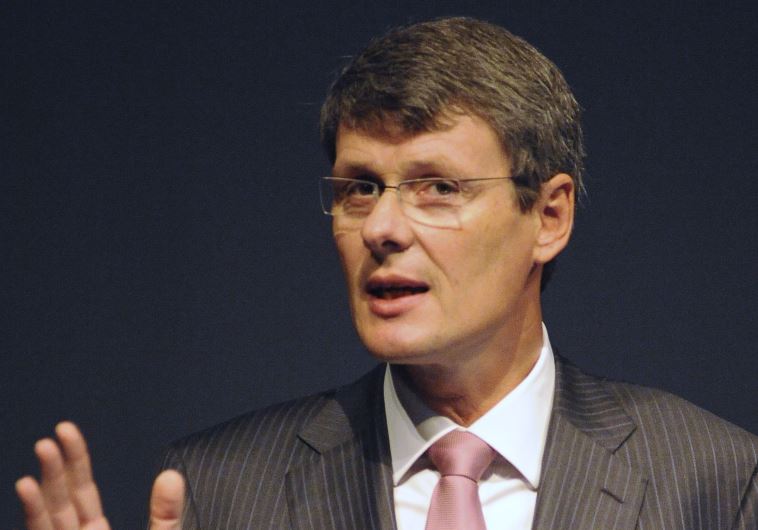Exclusive: Former Blackberry CEO Heins out at Israeli tech company Powermat
Shareholders saw Heins as overspending, lacking strategic vision, and failing to seal new deals for the company.
 Powermat CEO Thorsten Heins(photo credit: REUTERS/JON BLACKER)Updated:
Powermat CEO Thorsten Heins(photo credit: REUTERS/JON BLACKER)Updated: